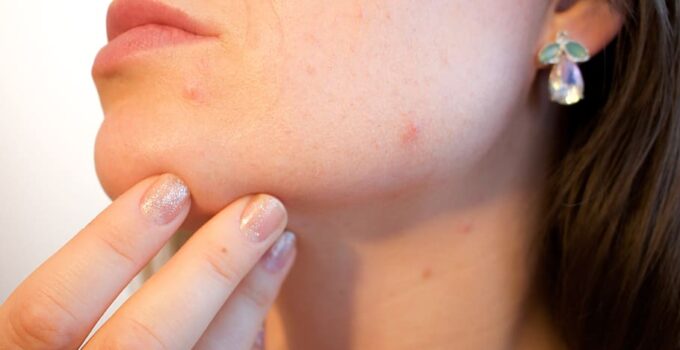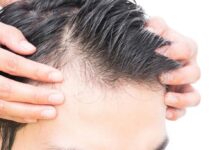Acne is a condition that affects the skin. It crops up when your skin pores get clogged with oil, dead skin cells, or bacteria. It usually causes blackheads, whiteheads, or pimples, and typically appears on the forehead, face, chest, the upper back as well as the shoulders. It is most common in teenagers, although it affects people regardless of their age. Every pore in your skin has an opening to a follicle, which is made of hair along with a sebaceous (oil) gland.
The oil gland discharges sebum (oil) that goes up the hair, then out of the pore, and on your skin. Sebum helps to keep your skin soft and lubricated. One problem or more in this process of lubrication might cause acne to crop up.
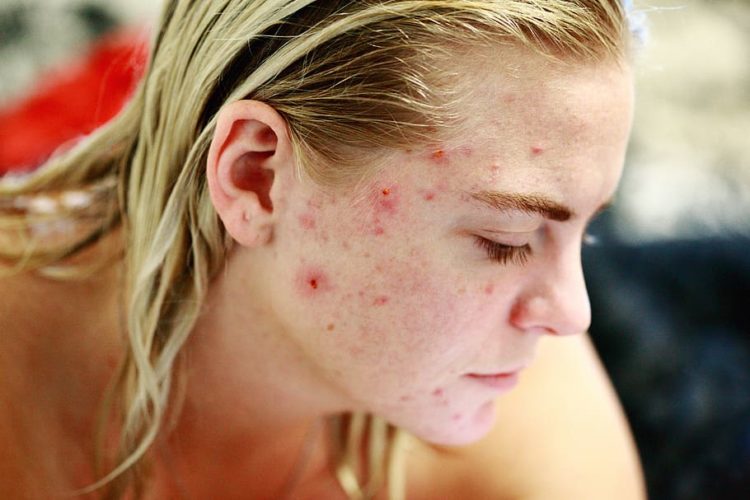
source:pxfuel.com
The problem might occur when your follicles produce excess oil when dead skin cells build up in your skin pores and when a bacterium accumulates in your pores. As a result, pimples start developing, and they crop up when bacteria develop in clogged pores, and the oil is incapable of escaping. This article will shed some light on what causes acne? You can read here the possible causes of acne.
Page Contents
Factors associated with causing and worsening acne
There are some certain risk factors that are associated with developing acne. These factors include:
What causes acne? Hormonal changes attributable to puberty and pregnancy
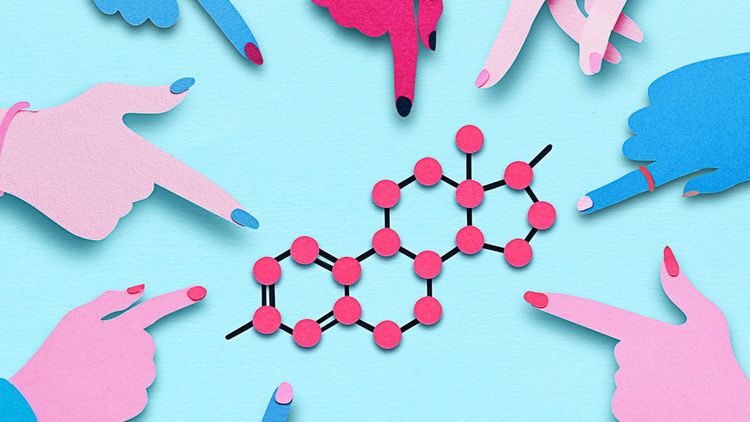
source:oprah.com
Hormones are primarily the leading causes of acne. Many people are at higher risk of developing acne in puberty because, during this period, your body goes through hormonal changes. These hormonal changes may trigger the production of oil, which can lead to a higher risk of getting acne. Androgens are hormones which increase in girls and boys during puberty, and they make the sebaceous glands to broaden and produce too much sebum.

source:pxfuel.com
Hormonal changes associated with pregnancy and oral contraceptives might have an effect on the production of sebum as well. Reduced amounts of androgens flow in women’s blood and might worsen acne. Hormonal acne associated with puberty typically subsides or improves at least when you get to adulthood.
Certain medications
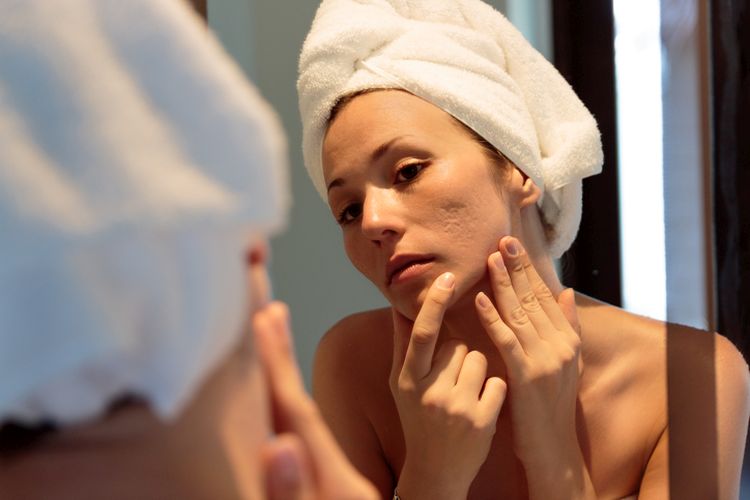
source:health.harvard.edu
Medications can contribute to the development of acne such as medicines containing lithium corticosteroids, testosterone, or some birth control pills. Steroids that athletes or bodybuilders sometimes take can cause or worsen acne.
Family history
Genetics plays a significant role in developing acne. If both of the parents had acne, then you are most likely to have it, too. Also, if one of your parents or both got adult acne, you are most likely to have adult acne as well
Cosmetics and skincare products
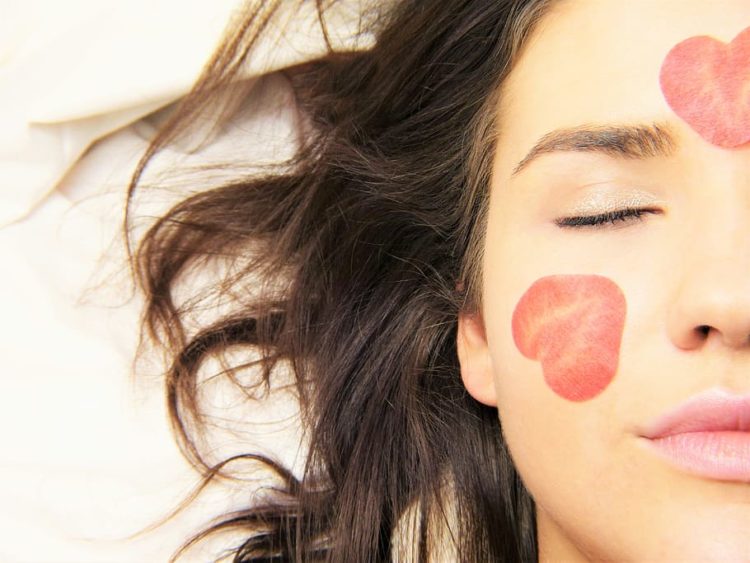
source:pxfuel.com
Out of the countless available skincare products brands, and cosmetics are ‘’comedogenic’’, meaning that they clog your skin pores. Therefore, it is essential first to read the ingredients and pick those that have water listed first, especially if you are concerned about acne.
“Water-based” products are typically best for people with acne. However, this is now becoming less common cause since most of these products are tested before they are released to the market.
Diet

source:drfuhrman.com
Some spicy food contains irritants that might drop the pH levels of your skin and thus trigger breakouts. However, it is not only spicy foods that cause acne. Several people react to gluten, dairy, or some types of foods.
How the diet affects the skin is absolutely dependent on an individual though some latest studies have shown that a diet high in carbohydrate, pure chocolate, and milk aggravates acne.
Stress

source:pxfuel.com
Although stress is not a catalyst for acne breakouts, it is a factor that aggravates an earlier existing condition. When the stress levels are time after time heightened, the adrenal glands usually signal the male hormone androgen production, which then signals the sebaceous oil glands to secrete extra sebum.
While this surplus oil accumulates, acne is most likely to develop. Since women produce a more significant percentage of androgens in their adrenal gland than men do, stress has more commonly an affectation on acne regularity in women.
Stress can make the appearance of acne worse since it makes the capillaries expand, causing an increased flow of blood. As a result, the skin appears red and swollen. Stress can as well make breakouts to last longer and turn out to be more severe because stress levels and pimples have a tendency of having a lousy cycle relationship.
Pressure or friction on your skin
When you place your chin on the palm of your skin while you are sitting on your desk, the act of touching your skin with your hands can transmit bacteria from your palm to your face too. It is even worse when you attempt to press the pimple or pus out of the pore because you risk pushing deeper the bacteria and thus making the problem to worsen.
Occupations
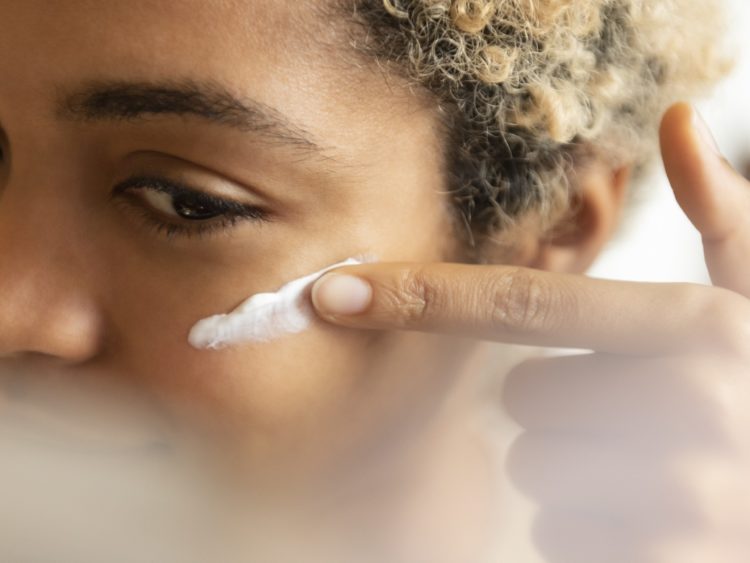
source:self.com
What causes acne in occupation? Having exposure to industrial products in some workplaces such as cutting oils might contribute to developing acne. You can develop acne when your skin gets exposed to oily or Greasy substances like a kitchen with fry vats.
Women have a likelihood of having acne even in their adult years than men. It is believed that the majority of the cases of acne are usually caused by the hormone levels changes that most women have at particular times in their life.
Acne sucks! Acne scarring may cause emotional distress. However, timely treatment might help to prevent scarring. Your dermatologist can also have treatment alternatives meant to treat scarring. Therefore, you are supposed to know what causes acne in your life to help you deal with the root cause.

